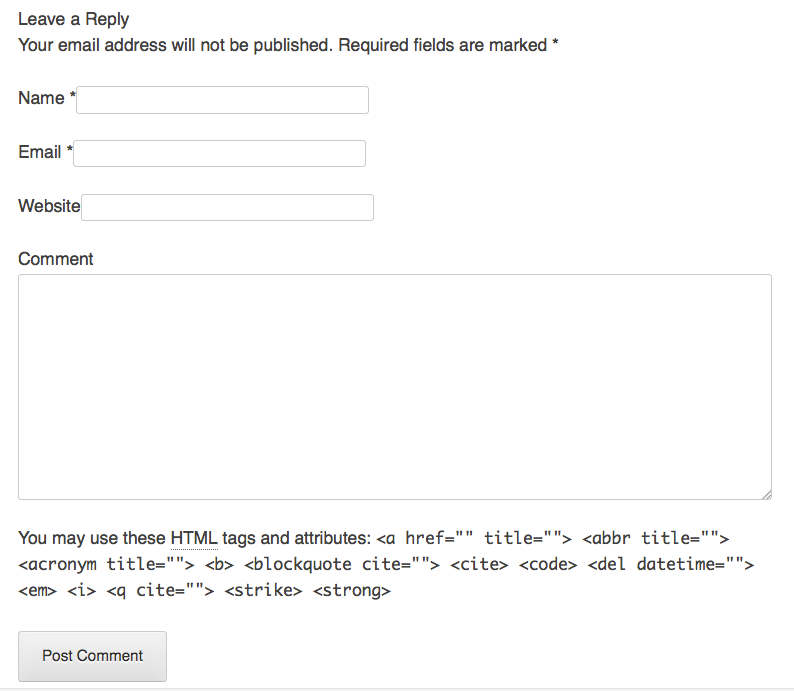Which plugin is best for managing WordPress comments: Disqus or Facebook? Both options have their appealing features, as well as drawbacks. Determining whether Disqus, Facebook or some other option is the best comment management plugin for your WordPress blog comes down to your needs and the preferences of your readership.

So which is actually better for your WordPress-based blog? Which one allows the greatest flexibility and functionality when viewers comment on your posts? In this article, I’ll share some insight into the workings of Disqus and Facebook related to WordPress, and cover some advantages of each.
Before answering Disqus vs. Facebook: Why are WordPress comments important?
Does anyone comment on blogs anymore? The answer is YES. If you are receiving responses and engagement from viewers, then these are all excellent indicators of the performance of your blog. This also means that you are likely drawing a decent amount of traffic.
As long as the comments are positive, then you can continue in the same direction. Be sure to also take note of the posts that generate the highest number of comments, shares, and interactions. This will help you determine which topic(s) to write about in the future, as well as the desired format.
On the other hand, if you aren’t seeing many comments, then you could be missing an opportunity to truly engage with your target audience. But don’t panic; there could be a number of reasons for this. Is your content written well? Are the format and structure easy to read and digest? Are your topics relevant to your audience? All in all, something about the content is not speaking to your intended customers. Therefore, it may be time to re-evaluate your blogging strategy.
Since comments, shares, and interactions are still incredibly vital to ascertain the health and performance of your blog, it is equally vital to ensure that viewers and readers can comment freely and easily. So, yes, the plugin in which you choose can discourage or encourage commenters, depending on how quickly and easily they can leave comments.
When I was in college, a friend of mine purchased a popular domain name for $20,000. My friend didn’t have any experience in the industry that this domain name would serve, but he put up a WordPress blog on the domain and started to write. He would write regularly and would write on topics that were sometimes controversial in the industry. The controversial nature of his posts drew people to his site to leave comments that supported or attacked a given side of the argument.
Because of the comments, his website became a sort of water cooler in the industry. After 18 months of managing this website and instigating comments, he sold his website and domain name to one of the key industry players for well over $300,000 — an exceptional investment for a college student. He attributes much of his success in this venture to the comment section of his blog.
Disqus comments review
As a comment system, Disqus is fairly popular on WordPress. It allows users to post using either their Twitter or Google accounts; however, people have to create an account and go through the extra step of email verification before they post a comment. This may discourage some users who just want to comment quickly and don’t have the extra time to check their email and confirm it. Once that step is complete, however, it’s very easy for people to understand the user interface and post comments. The email verification process is also helpful for eliminating spam comments.
Disqus functionality and security
Disqus acts similar to a social network. It enables users to view every comment they have posted, as well as replies to their comments. A person can respond to replies from their Disqus dashboard, without having to go back to the blog post or page where they originally made the comment.
As the one creating the content or supervising the blog, you can view analytic information that is valuable for the future direction of your blog. Disqus is also designed to curb spam, and it quickly recognizes and removes spam accounts or comments. Any comments made through Disqus are crawlable, meaning that search engines can see them.
So, if you have spam comments on your blog, then the immediate crawlability could potentially hurt your blog’s rank. However, Disqus offers single sign-on, which allows bloggers to seamlessly integrate it with their user management system, and restrict comments to subscribers, reducing spam accounts and comments.
Disqus drawbacks
Disqus looks the way it does, and there’s not much you can do to change it. So if your business values aesthetics highly, you may find the lack of flexibility frustrating. There are a few modifications you can make. But for an image-conscious company, those changes may not go far enough, and Disqus may look jarringly different from the rest of your blog.
Blog owners find Disqus a bit slow sometimes. It’s an external plug-in, so comments may take a bit of extra time to load. Disqus also runs its own ads on your blog, and you can’t eliminate those. There also have been reports of affiliate links being altered without the permission of the blog owner, resulting in thousands of dollars of lost revenue.
Facebook Comments review
Facebook has an advantage over Disqus from the get-go because it is so very familiar to many users. Facebook feels comfortable and friendly because it’s the space where people go to share about their lives and to get updates from friends and family. For businesses, Facebook is a space to effectively connect and build a relevant network. Plus, Facebook has a built-in audience of over a billion people. That’s a lot of users who already have a profile that allows them to comment on your blog — no registration or verification required.
Facebook functionality and security
Since users comment through their Facebook accounts, which are already vetted, your blog is shielded from most spammers. When users are on Facebook, they can see their replies to their comments through Facebook, so they are still linked to your blog and its activity even if they’re just scrolling through their news feed.
Thanks to the development of new frames within the comment plug-in, Facebook comments made on your blog are findable by search engines — a huge advantage in today’s digital marketplace.
Facebook failures
In some cases, using Facebook to comment will turn away users. Perhaps a user would prefer to comment anonymously using a false name or a username that cannot be connected to his or her real identity. The Facebook comment system makes that impossible. Plus, keep in mind that you will be eliminating the option to comment for users who prefer not to have a Facebook page. If your company caters to an offbeat, individualistic or non-tech-savvy market that rejects mainstream social media like Facebook, this isn’t the right system for you.
Like Disqus, the Facebook Comments plug-in doesn’t gel very well with some blog designs. It includes some elementary options for adjusting the theme, but those changes do not go very far. There’s also the issue of slower load times due to Facebook’s external plug-in status.
The right audience for the Disqus comment plug-in
Disqus works well for the in-the-moment user, the one who likes to feel directly engaged in real time. These people like to know when someone else is typing a comment. They leave a comment of their own and wait with bated breath for the next comment from another user to appear in the comment conversation. They like to communicate with others about your products or services in real time. This type of engagement is great to have unless it devolves into an inappropriately controversial conversation, in which case you may have to close comments on a particular post.
The right audience for the Facebook Comments plug-in
Commenting via the Facebook Comments plug-in is the right recipe for loyal Facebook users. These individuals spend a lot of time on their preferred social network, and they like sharing anything and everything with their friends and followers.
If you want your customers to be able to publish their comments on your blog to their profiles on Facebook, the Facebook plug-in is the ideal solution. You’ll likely gain more views and awareness for your company using this comment method.
According to a number of WordPress bloggers, Disqus has a slight advantage due to its analytics potential and flexibility for non-Facebook users. However, depending on your target audience, you may find more value in the Facebook plug-in as an access point to a broader social media platform.
Other WordPress comment moderation options
Still haven’t decided the best for you, Disqus vs. Facebook? If you’re not sure which one to choose, try one plug-in for a while and test its performance for your business’s blog, knowing that the switching costs aren’t too high as long as you make the switch early on, before you already have too many comments left.
There are also other commenting tools and options available for WordPress, such as the following:
Jetpack comment forms
Jetpack. As we know, getting your readers to engage in discussions or post comments on your blogs requires planning the right topics that will spark discussion, research, and then the actual writing process. Jetpack is another WordPress plug-in that helps makes the commenting process a little easier.
Jetpack makes it easy for users and readers to post comments by automatically integrating social media accounts to avoid a lengthy or overly complex registration process. Commenters and users also have the option to receive notifications when follow-up comments are posted. This allows both commenters and users to respond easily and in a timely fashion.
Better site loading times with Lazy Load
Lazy Load for Comments. Lazy Load can help improve the overall performance of your website. And a website that loads quickly means happier visitors, readers, and users. The happier you user and reader base is, the more engaged they will be.
Lazy Load for Comments essentially delays loading the comments section at the end of a blog post until a user scrolls or navigates down the page. And because the comments section is typically at the end of a blog post, this doesn’t negatively impact the overall user experience, ensuring that your user base is engaged.
How to avoid comment spam
Is there anything more annoying than receiving an email or other notification that someone had published a comment only to discover that the comment was spam? After all your hard work planning, writing, and publishing your blog posts, you want to ensure that the comments you receive are legit and not spam.
The good news is that spam comments can be avoided in WordPress. Be sure to visit your WordPress admin panel and select the enabling and moderating comments section. By enabling this setting, you can moderate all comments for you to review prior to publishing them.








